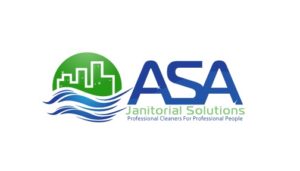 According to a recent NBC News report, 90 percent of workers say they go to work when they’re sick, rather than stay home. But health experts say this is a mistake. It means sick employees are spreading germs in the workplace. This is a concern most recently identified with the coronavirus pandemic.
According to a recent NBC News report, 90 percent of workers say they go to work when they’re sick, rather than stay home. But health experts say this is a mistake. It means sick employees are spreading germs in the workplace. This is a concern most recently identified with the coronavirus pandemic.
That carelessness is compounded by the fact that an astonishing number of people don’t get vaccinated. According to the Centers for Disease Control and Prevention, in the 2015-2016 flu season, just 43.3 percent of U.S. adults got the flu vaccine. For those under age 18, the rate was 59 percent.
According to a 2018 Staples Cold and Flu Survey, about half of those who caught the flu believe they caught it from a co-worker.
The result is lost productivity and lost revenue. The Harvard Business Review reports that employees who work while sick cost employers about $150 billion to $250 billion or 60 percent of the total cost of worker illness.
One way to help reduce the impact of flu on your business is to encourage employees to wash their hands frequently, place alcohol-based antibacterial hand cleaning stations in convenient locations, and increase professional cleaning schedules during flu season.
Proper cleaning techniques and effective cleaning products can help reduce the transmission of germs in the workplace. My wife, Deborah, and I founded ASA Janitorial Solutions in 2011, and together, we have more than 25 years of janitorial and building maintenance experience. With 15 employees, we serve businesses on Cape Cod and the South Shore. While medical facilities are our mainstay, we also service general office cleaning as well.
In an office environment, good cleaning techniques are essential for a healthy environment. It’s important to wipe down all flat surfaces in personal offices and cubicles with good antiseptic wipes. That includes things that people touch, where germs can spread, such as desktops, keyboards, mouses and mousepads, even the arms on desk chairs.
It’s very helpful to encourage office staff to minimize desk clutter at least once a week so such proper cleaning can be done. Good personal habits are important too. We recommend that employers include sanitizers along with their regular purchase of office supplies. If there’s a sanitizer on a desktop, we find that people tend to use it.
How often should you have your workplace professionally cleaned? That depends on the size of your staff and the size of your facility. While a small office with fewer than 10 people might get away with a once-a-week service, larger offices with 10 to 25 employees should be cleaned twice per week. As office staff grows so should the service frequency. Smaller businesses tend to be able to control the cleanliness of an office whereas larger offices tend to lose control faster. Medical facilities and medical offices are different. They should be serviced daily.
It’s important that door knobs, light switches, handrails, the tops of chairs and door frames also be thoroughly cleaned. While there are many products available that can help keep germs to a minimum, any antibacterial product needs time to work. Surfaces should be wiped down until wet , and then allowed to dry.
Among those effective products, bleach is excellent for bathrooms, but the odor prohibits it from being used elsewhere. Antibacterial wipes can be used in many places, and they’re particularly useful in gyms, because they’re virucidal, bactericidal, tuberculocidal, pseudomonal, alcohol-free, phenol-free and bleach-free.
We also recommend Envirox, an antibacterial germicide that’s good for multiple uses, as it can be diluted to two different strengths. Finally, Cavicide is an EPA-registered intermediate level disinfectant that is tuberculocidal, bactericidal, virucidal and fungicidal.
In an office setting, the investment of a good cleaning service can do more than just reduce the danger of germ transmission. We find that good cleaning makes an impact on how the staff goes about their jobs. That’s particularly true in a medical facility or office. A clean office means office staff don’t have to start the day cleaning what the cleaning company missed or neglected.
If staff members see that their employer cares and is willing to invest in the cleanliness of the facility, they tend to be more conscientious about their jobs, and morale improves. Efficiency increases, the use of sick days declines, and the general attitude of employees and visitors is better. People take pride in where they work!
Richard St. Aubin is the owner and president of ASA Janitorial Solutions, serving Cape Cod and the South Shore. For more information visit https://asajanitorialsolutions.biz or call 508-896-1000.






















